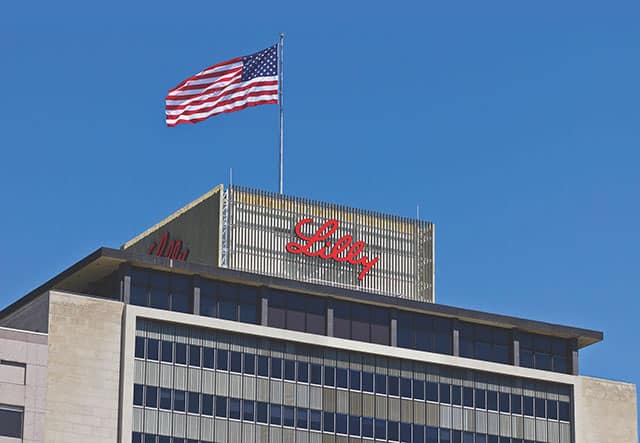
Eli Lilly has shared positive results from a late-stage study of its interleukin-23p19 antagonist, mirikizumab, in Crohn’s disease.
The phase 3 VIVID-1 trial has been evaluating the safety and efficacy of mirikizumab compared with placebo or Johnson & Johnson’s Stelara (ustekinumab) in adults with moderately to severely active Crohn’s disease, with or without previous biologic failure.
The results, which were presented at this year’s Digestive Disease Week, showed that mirikizumab achieved both co-primary endpoints and all major secondary endpoints at week 52 compared to placebo.
Crohn’s disease is one of the two main types of inflammatory bowel disease (IBD), which affects almost one in every 100 people in the US.
The condition causes symptoms such as persistent diarrhoea and abdominal pain and, if not adequately controlled, can lead to complications that require hospitalisation and surgical intervention.
Lilly’s mirikizumab already holds approvals to treat moderately to severely active cases of ulcerative colitis, another of the two main forms of IBD, in adults under the brand name Omvoh.
Data from VIVID-1 showed that 39.3% of patients with no prior biologic failure (bio-naïve) and 36.7% of those for whom biologics did not or stopped working (bio-failed) receiving mirikizumab achieved clinical response by patient-reported outcomes (PRO) at week 12 and endoscopic response at week 52, compared to 11.8% and 6.2% of bio-naïve and bio-failed patients in the placebo cohort, respectively.
Additionally, 47.3% of bio-naïve and 43.4% of bio-failed patients randomised to receive mirikizumab achieved composite week 12 PRO clinical response and week 52 clinical remission measured by the Crohn’s Disease Activity Index, compared to 26.5% and 12.4% of placebo, respectively.
Overall, after one year, 54.1% of mirikizumab-treated patients reached clinical remission and 48.4% achieved endoscopic response, with the majority of patients who achieved either of these endpoints achieving both together.
Patients being treated with mirikizumab also achieved combined week 52 clinical remission and endoscopic response at nominally statistically significant higher rates compared to patients on Stelara, Takeda said.
Mark Genovese, senior vice president of Lilly immunology development, said: “Lilly is committed to developing innovative treatments, like mirikizumab, that may improve upon the standard of care for people impacted by IBD and immune-mediated diseases.”
The company has already submitted supplemental biologics licence applications for mirikizumab in Crohn’s disease in the US and EU.




